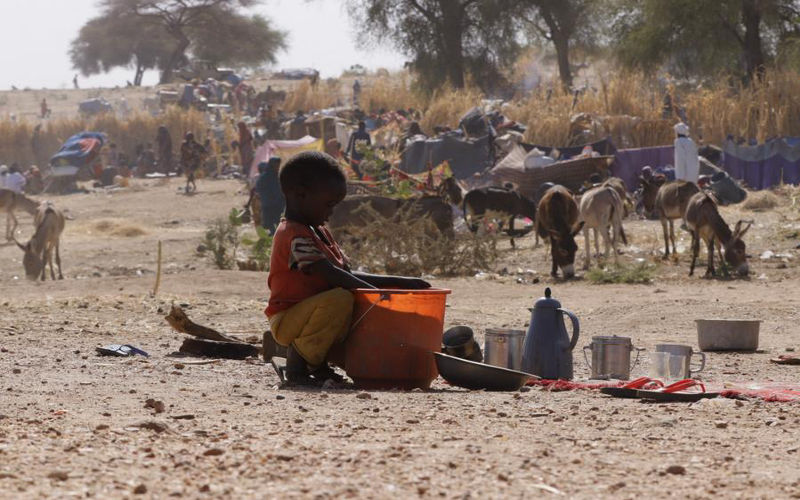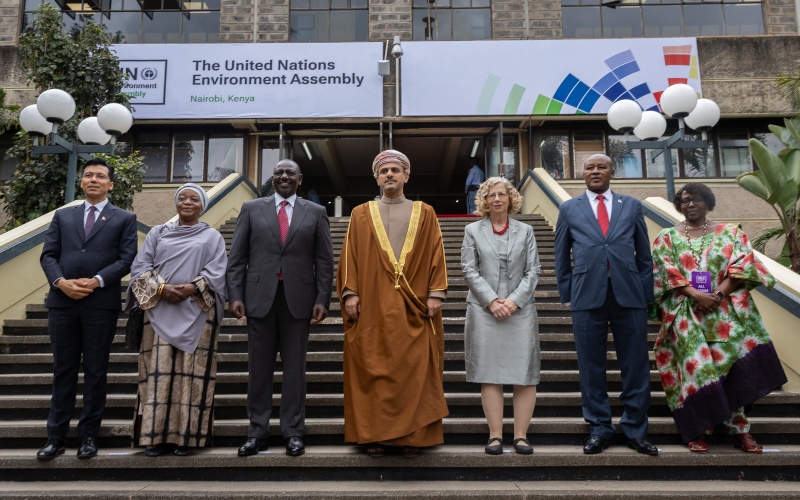89 per cent of Sudan’s farmers facing reduced yields amid civil war - report

89 per cent of smallholder farmers reported lower crop yields since fighting began, while more than half said insecurity had prevented them from harvesting.
Sudan's ongoing civil war has severely affected agriculture, driving down food production and pushing millions closer to famine, with women farmers hardest hit, aid group CARE said in a report released Tuesday.
The study, conflict, Women and Agriculture in Sudan, found that 89 per cent of smallholder farmers reported lower crop yields since fighting began, while more than half said insecurity had prevented them from harvesting.
According to CARE, the collapse of farming in Sudan threatens "catastrophic and preventable" loss of life if urgent support is not provided.
More To Read
- Sudan war: Aid teams say deal struck to reach stricken El Fasher
- UK sanctions Sudan’s RSF commanders over atrocities amid ongoing conflict
- Maternal and newborn health in crisis as millions born in conflict zones, Save the Children warns
- South Sudan deploys forces to secure Heglig oil field after Sudan RSF capture
- UN warns human rights face growing threats worldwide in 2025 as funding for activists falls
- All we want for Sudan is peace, say children fleeing violence
The survey was carried out between March 21 and April 15, 2025, in East Darfur, South Darfur and South Kordofan, with researchers questioning 492 randomly selected farmers through focus group discussions and one-on-one interviews.
Women made up 87 per cent of respondents, reflecting demographic changes as men have been forced to leave rural areas in search of work or to avoid recruitment by armed groups.
According to the report, nearly nine in 10 respondents said women's farming was constrained by a lack of money for seeds, fertiliser and tools. Before the war, about one in five farmers cultivated less than one feddan of land, but that proportion has now doubled to more than 40 per cent.
This, CARE says, highlights how insecurity, labour shortages and high costs of farming have forced families to cut back on agricultural production.
Similarly, more than three-quarters of farmers said their crops were spoiled, stolen or left to rot because of poor storage facilities. The report also found that women, who often manage food processing and storage, lost crucial income as many were forced to sell produce early at very low prices.
Further, almost two-thirds of respondents reported disruptions, with 17 per cent saying they could not reach markets at all. Rising fuel prices, transport shortages, and insecurity on key roads have further limited trade, according to the report.
Additionally, 80 per cent of farmers pointed to unstable food prices, while 58 per cent cited high input costs as a major strain on their communities.
The CARE report also revealed that four out of five respondents reported low food availability in their areas, even though the survey was conducted during the harvest season, when supplies are normally higher.
Interviewed families said they were cutting back both the number of meals and the variety of foods they consumed. Women, who often eat last and least in households, were found to be at particular risk.
Despite the worsening crisis, aid in Sudan remains far below what is needed. According to CARE, by July, only 18 per cent of the 15 million people targeted for agricultural support in 2025 had received any assistance.
CARE subsequently urged governments and donors to treat farming as life-saving aid and increase direct support for women's farmer groups. It also called for investments in storage facilities, stronger market systems and closer coordination between humanitarian, development and peacebuilding efforts.
"Without urgent support to farmers, food insecurity and nutrition needs will deepen with devastating consequences," the report warned.
Top Stories Today














































